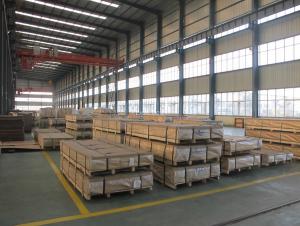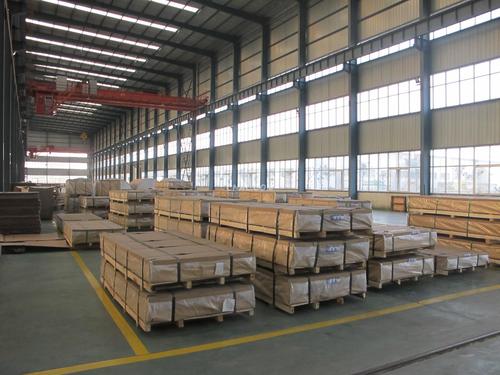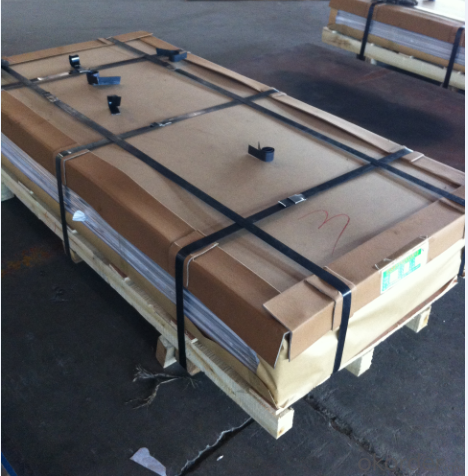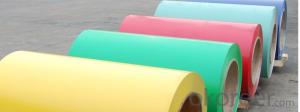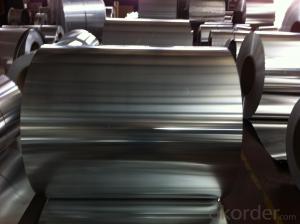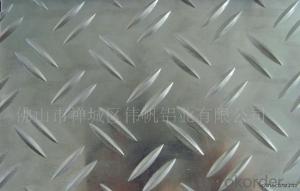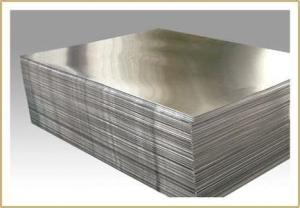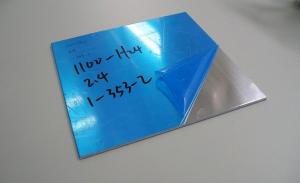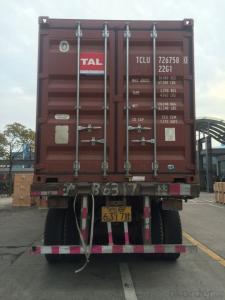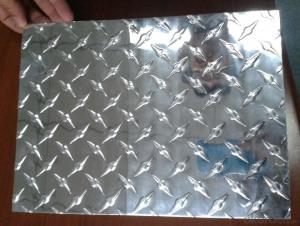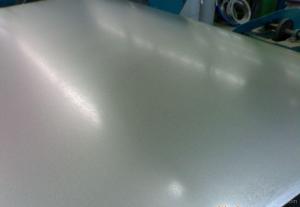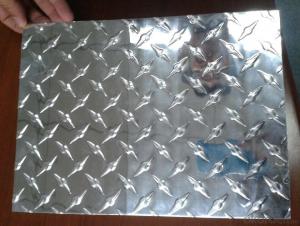Patio Aluminum Sheets - Aluminium Alloy Sheet Stocks and Slabs with Best Price
- Loading Port:
- Shanghai
- Payment Terms:
- TT or LC
- Min Order Qty:
- 9 m.t.
- Supply Capability:
- 4000 m.t./month
OKorder Service Pledge
OKorder Financial Service
You Might Also Like
1.Structure of Product Description
Cold rolled aluminum sheet is widely used in the field of construction field and decoration field, etc.
There are many different grades, such as: 1000 series, 2000 series, 3000 series, 5000 series, 6000series, etc. The detailed grade are as follows: 1010, 1050,1060,1100, 2024, 3003, 3005, 3105, 5052,5754,5083,6061,6063,8011, etc.
The temper is include H14, H22, H24, H44,H112,H114,etc.
2. Main features of the product
a.Competitive price
b.Frist-Class Service.
c. Shortest service.
3. Image.
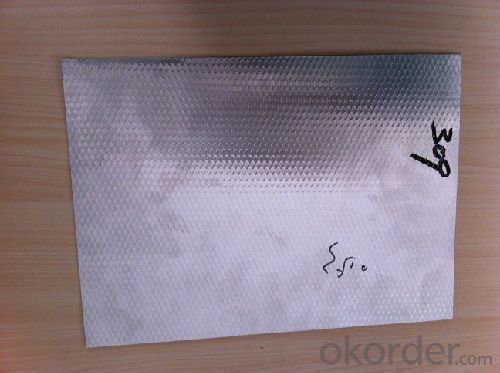
4. Product detailed sizes:
1000mm*2000mm, 1219mm*2438mm,1220mm*2440mm, 1250mm*2500mm,1500mm*3000mm, etc.
5. FAQ:
What is the quality standard?
---Usually our standard is GB3880-2006 or others.
What is the width range?
---It is from 1000mm to 2500mm, etc.
What is the length range:
---It is from 2000mm to 6000mm, etc.
What is the MOQ for your products yet?
---Normally it is around 5 tons/each size.
What is your mainly products?
---Normally they are aluminum sheet, checkered sheet, mirror finish aluminium sheet, aluminum casting coil, etc.
- Q: How do you ensure the dimensional accuracy of aluminum sheets?
- To ensure the dimensional accuracy of aluminum sheets, several measures can be taken. First, it is important to use high-quality aluminum material that meets the required specifications and standards. Secondly, employing precision cutting techniques, such as laser cutting or water jet cutting, can help achieve precise dimensions. Additionally, utilizing advanced measurement tools and equipment, such as calipers or coordinate measuring machines, allows for accurate dimensional verification. Implementing a robust quality control process, including regular inspections and monitoring during the production process, can further ensure dimensional accuracy.
- Q: Can aluminum sheets be soldered?
- Soldering aluminum sheets is indeed possible, but it necessitates specific techniques and materials. Due to its high thermal conductivity and low melting point, traditional soldering methods pose a challenge when working with aluminum. Nevertheless, specialized soldering techniques, like the utilization of flux and a soldering iron with a high temperature, can successfully solder aluminum. Furthermore, a particular type of solder known as aluminum solder or aluminum flux-cored solder is essential, as regular solder does not adhere well to aluminum surfaces. Thoroughly cleaning the aluminum surface before soldering is crucial to ensure a sturdy bond. In summary, although soldering aluminum sheets may be more intricate compared to other metals, it is achievable with the appropriate tools, materials, and techniques.
- Q: Can the aluminum sheets be used for manufacturing automotive wheels?
- Yes, aluminum sheets can be used for manufacturing automotive wheels. Aluminum is a lightweight and durable material that is commonly used in the automotive industry due to its high strength-to-weight ratio. Aluminum sheets can be formed and machined into the desired shape and specifications required for automotive wheels. Additionally, aluminum has excellent corrosion resistance properties, which is beneficial for automotive wheels that are exposed to various weather conditions and road debris. Overall, aluminum sheets are a suitable material for manufacturing automotive wheels, providing a balance of strength, weight, and corrosion resistance.
- Q: there is a magnet for other type of nails except aluminum nails
- sadly, magnets do not work on aluminum, however, the are light enough, to be picked up by a vacuum.
- Q: Is it possible to use aluminum sheets as a material for exterior siding or cladding on buildings?
- <p>Yes, aluminum sheets are commonly used for siding or cladding due to their durability, lightweight, and resistance to corrosion. They are low maintenance, can be easily shaped, and come in various colors and finishes. Aluminum's resistance to weathering and its ability to withstand temperature extremes make it a popular choice for both residential and commercial buildings.</p>
- Q: This question asks for a list of various fasteners that are commonly used in the installation process of aluminum sheets.
- <p>There are several types of fasteners used for installing aluminum sheets, including: 1. Self-tapping screws, which create their own threads in the material. 2. Rivets, which join two pieces of material by compressing them together. 3. Pop rivets, a type of rivet that can be installed using a handheld tool. 4. Structural adhesives, which bond the sheets together without visible fasteners. 5. Welding, although not a fastener, it's a method used to join aluminum sheets permanently. 6. Mechanical fasteners like bolts and nuts, which are tightened to secure the sheets. 7. Clips and clamps, used for temporary or decorative installations. Each type has its own advantages and is chosen based on the specific requirements of the installation, such as load-bearing needs, aesthetic considerations, and the environment in which the aluminum sheets will be used.</p>
- Q: What specific coatings or treatments are required for aluminum sheets to enhance their properties or protect them?
- <p>Special coatings or treatments for aluminum sheets may be needed depending on the application. Anodizing is a common treatment that enhances corrosion resistance and wear. For aesthetic purposes, aluminum can be painted or coated with a clear lacquer to maintain its appearance. Protective coatings like powder coating or electroplating can be used to improve durability and resistance to environmental factors. In certain industrial applications, aluminum sheets may be treated with specific coatings to enhance thermal or electrical conductivity. The choice of coating or treatment depends on the specific requirements of the project, such as resistance to weather, chemicals, or mechanical stress.</p>
- Q: Are aluminum sheets prone to warping?
- Under certain conditions, aluminum sheets may be susceptible to warping. Unlike steel, aluminum is a relatively soft metal, making it more prone to bending or distorting. However, the extent of warping in aluminum sheets depends on various factors, including sheet thickness, alloy composition, temperature exposure, and applied stress levels. Thinner aluminum sheets have less structural integrity, making them more prone to warping. Conversely, thicker sheets are more resistant to warping due to their increased rigidity. The specific alloy composition of the aluminum sheet also affects its susceptibility to warping. Warping can occur due to temperature fluctuations. High temperatures cause aluminum to expand, and without proper support, it may bend or warp. Similarly, rapid cooling causes contraction, leading to warping. The level of stress applied to aluminum sheets can contribute to warping. Excessive bending, pressure, or unevenly distributed loads can deform the sheet. To minimize warping, it is crucial to handle aluminum sheets carefully, provide adequate support during temperature changes, and avoid applying excessive stress. Additionally, using thicker sheets or selecting alloys with higher tensile strength helps reduce the risk of warping.
- Q: Can aluminum sheets be used for heat exchangers?
- Indeed, heat exchangers can utilize aluminum sheets. Aluminum, known for its remarkable heat conductivity, proves to be a perfect choice when it comes to heat exchangers. Its superior thermal conductivity facilitates exceptional heat transfer between fluids, leading to efficient heat exchange. Moreover, aluminum sheets possess the advantages of being lightweight, resistant to corrosion, and exhibiting commendable mechanical properties. These additional attributes further enhance their suitability for various heat exchanger applications.
- Q: (2) when aluminium foil is dipped in mercury for a short time and then placed in water a reaction is seen to occur with hydrogen gas being one of the products.?????
- Aluminium is very reactive in air and forms a protective oxide coating. This protects it when placed in water as aluminium oxide is unreactive with water. When immersed in mercury the oxide coating is removed and therefore the aluminium itself reacts when the cleaned aluminium metal is immersed in water.
Send your message to us
Patio Aluminum Sheets - Aluminium Alloy Sheet Stocks and Slabs with Best Price
- Loading Port:
- Shanghai
- Payment Terms:
- TT or LC
- Min Order Qty:
- 9 m.t.
- Supply Capability:
- 4000 m.t./month
OKorder Service Pledge
OKorder Financial Service
Similar products
Hot products
Hot Searches
Related keywords
